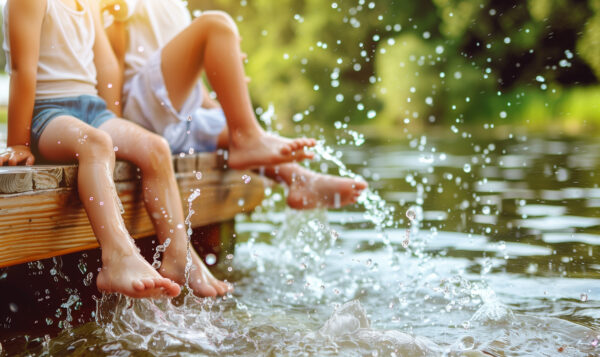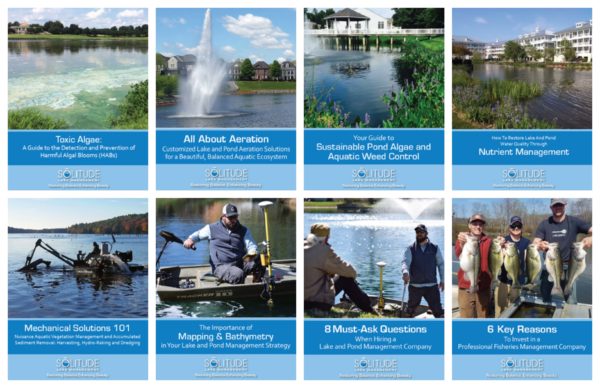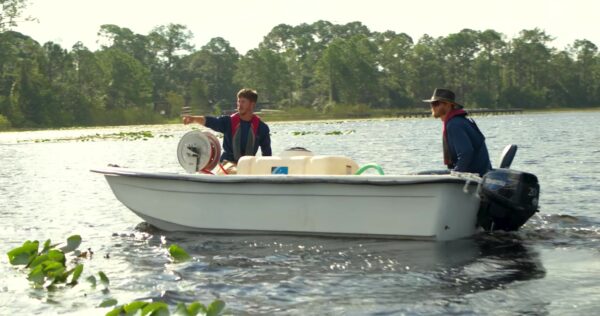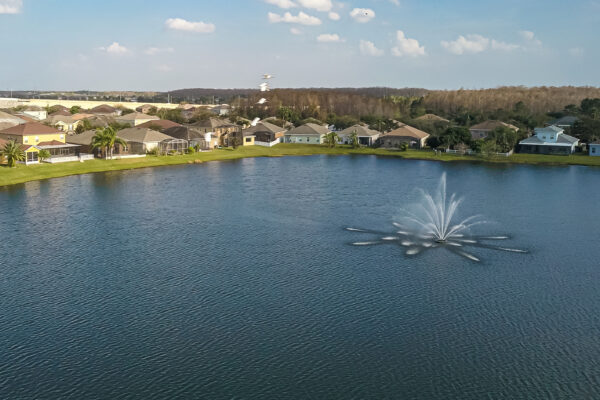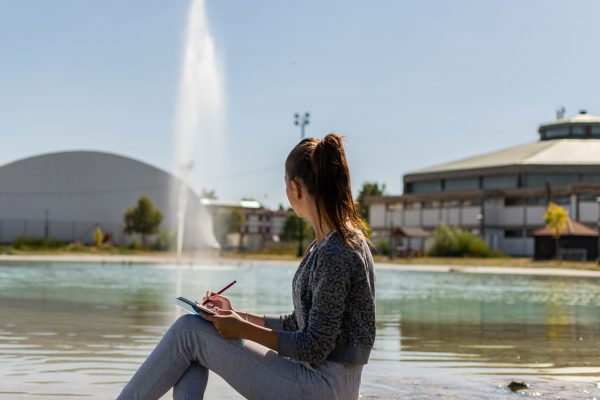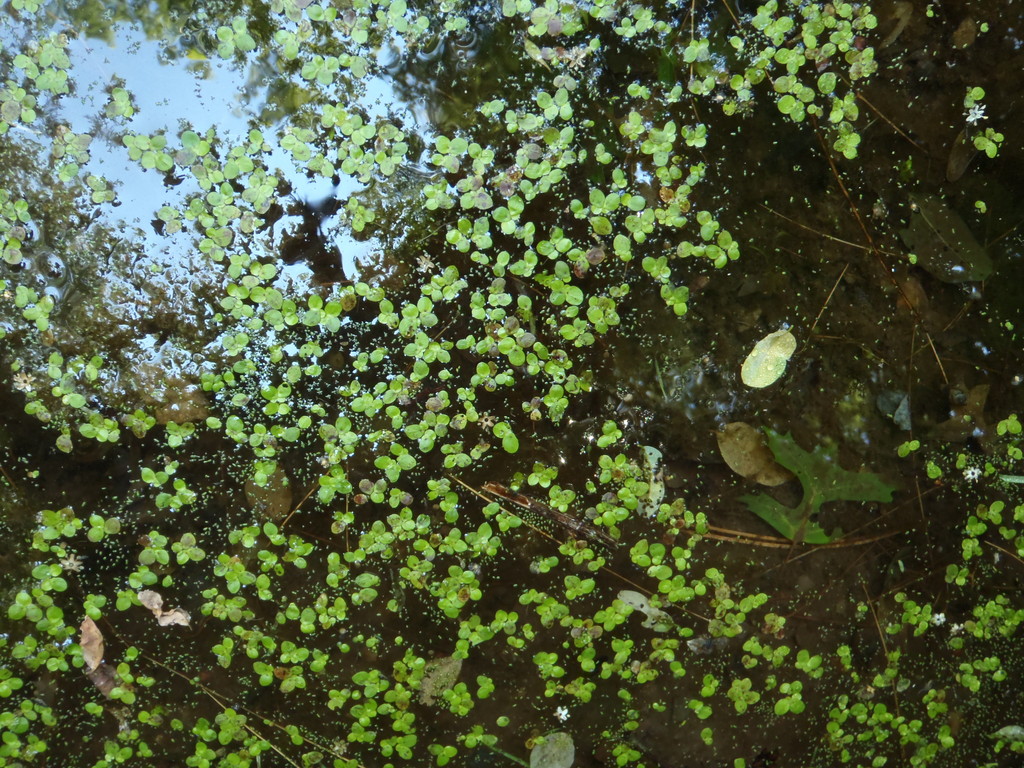
Duckweed, also referred to as water lentils or Lemna, is a common aquatic plant that can quickly take over lakes and ponds. This tiny floating plant, known for its small, green, oval leaves, can proliferate rapidly under the right conditions, leading to excessive coverage on the water’s surface. Before attempting to get rid of duckweed, it’s crucial to identify all the organisms present in your water. Accurately assessing the aquatic environment ensures that any treatments you apply target the unwanted growth without negatively impacting beneficial species or the overall health of the pond. Learn about SOLitude’s effective and sustainable solutions for duckweed removal and maintaining a balanced aquatic ecosystem.
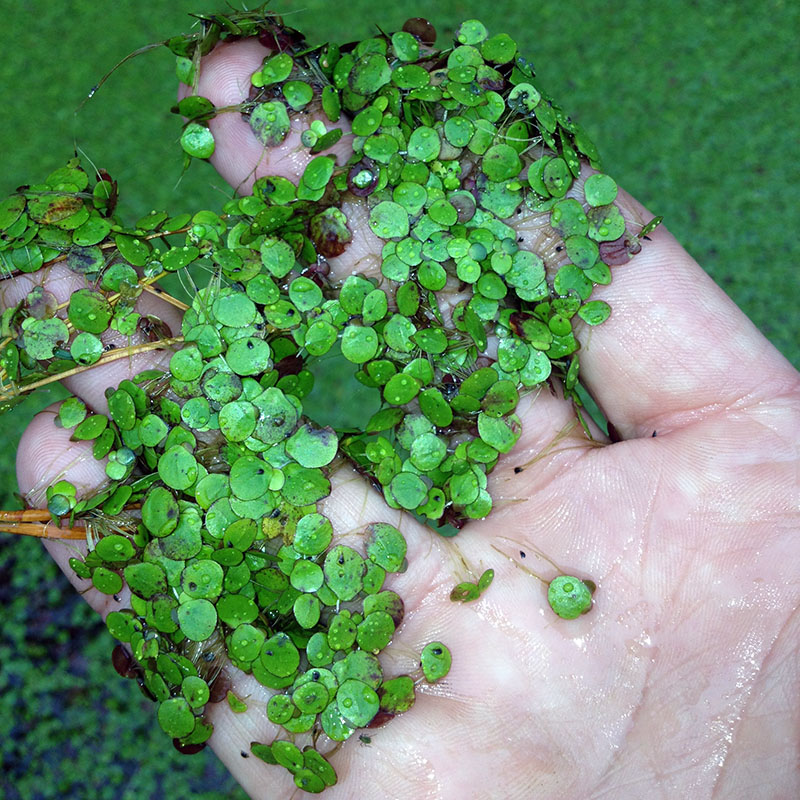
What is Duckweed?
Duckweed is a floating aquatic plant in the family Lemnaceae. It is often found in calm waters like ponds, lakes, and slow-moving streams, where it forms dense mats on the surface. Duckweed is frequently mistaken for algae due to its green coloration and ability to grow quickly, but it differs significantly, as duckweed is a flowering plant rather than an organism. Identifying duckweed is relatively easy; look for small, round leaves clustered together, often accompanied by root-like structures hanging beneath the water’s surface.
Why Is Duckweed In My Pond?
The presence of duckweed in a pond is usually a result of excess nutrients, particularly phosphorus and nitrogen, often stemming from runoff containing fertilizers, organic matter, or wastewater. Wildlife such as birds or waterfowl can also contribute to its spread by transferring duckweed seeds between waterbodies. Duckweed’s dense growth can limit sunlight penetration, inhibiting the photosynthesis of submerged plants and disrupting aquatic ecosystems. In addition, the decomposition of excess duckweed can lead to oxygen depletion in the water, which can be detrimental to fish and other aquatic organisms.
The Best Duckweed Removal and Management Methods
There are many options to control duckweed in a pond. The most common and effective way to get rid of duckweed is through herbicide applications. Herbicides can rapidly reduce duckweed coverage when applied by a trained professional who knows the proper doses and application rates. Grass Carp are an effective biological or natural control mechanism; these fish feed on aquatic vegetation and can help maintain duckweed in a pond over time. Before stocking Grass Carp, it’s important to check if they are legal in your state.
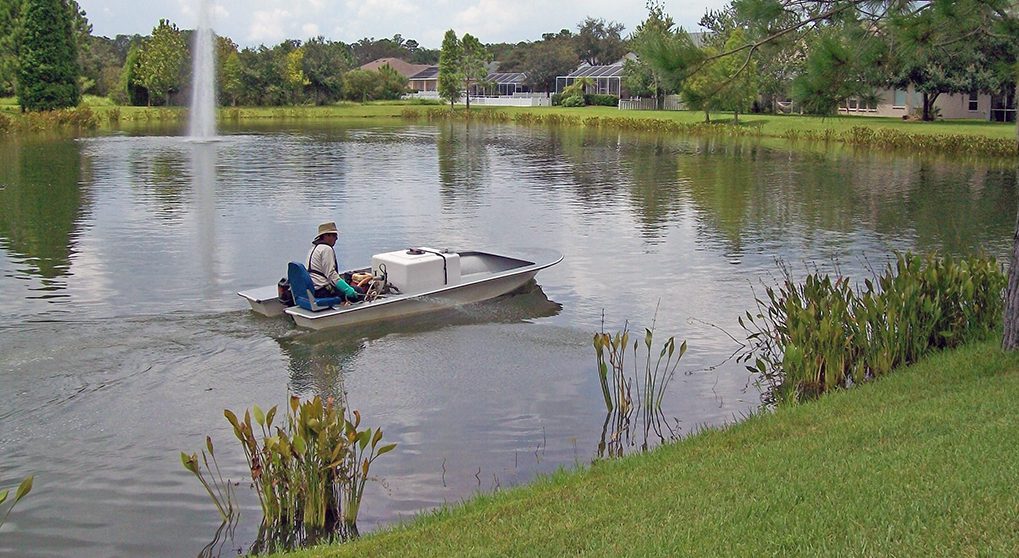
Can You Physically Remove Duckweed In A Pond?
It’s important to avoid physical duckweed removal methods such as hand pulling, hydro-raking, or mechanical harvesting. These strategies can often be counterproductive, as they might inadvertently lead to the spread of duckweed through fragmentation. For instance, when plants are cut or uprooted, fragments can disperse throughout the waterbody or flow downstream and take root in new locations, exacerbating the problem rather than solving it. That’s why it’s best to utilize recommended solutions like aquatic herbicides or Grass Carp to target and eliminate duckweed in a pond.
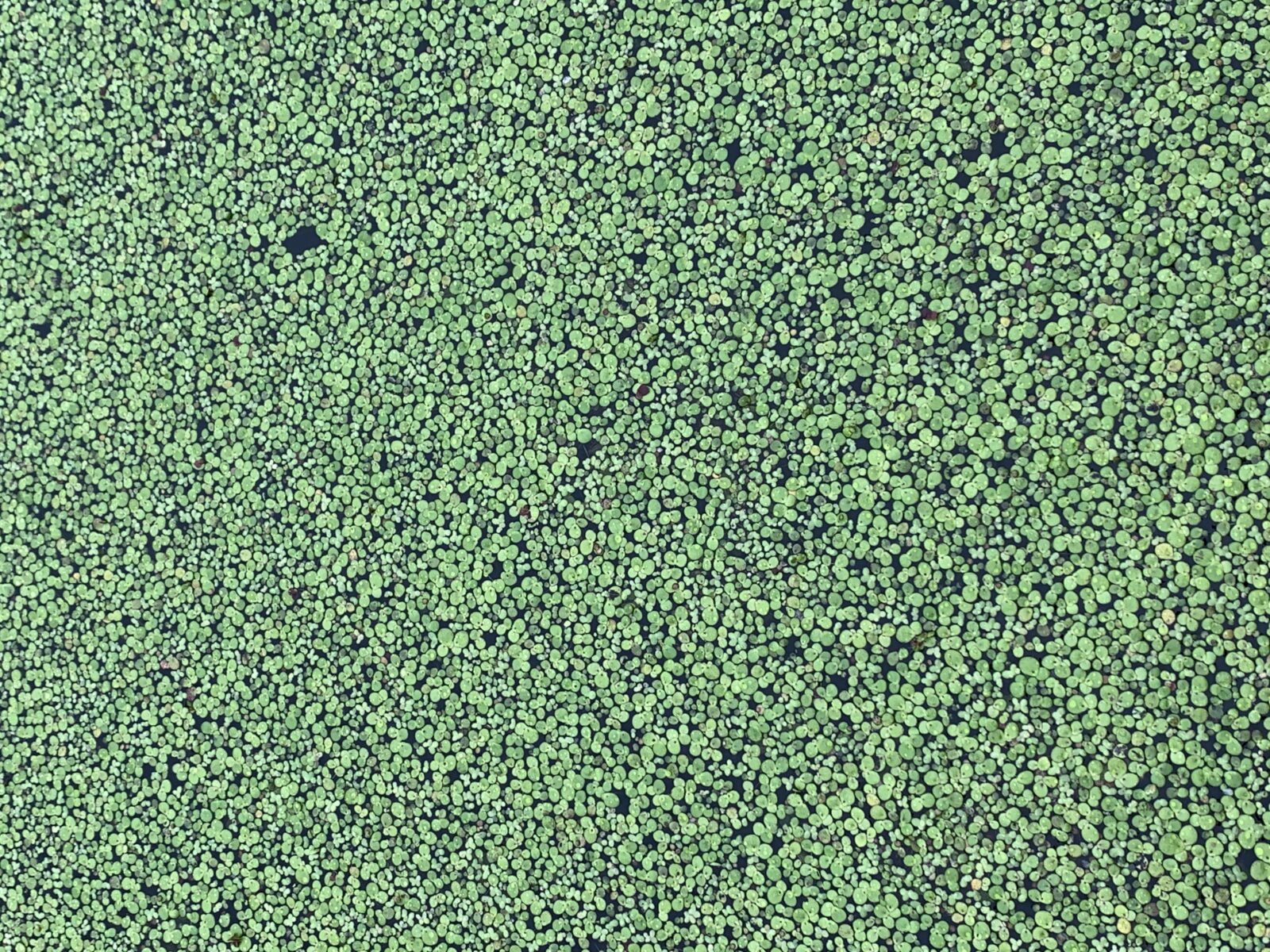
How to Prevent Duckweed from Growing Again
To effectively manage or prevent duckweed in ponds, prioritize maintaining balanced water quality. This involves ensuring healthy nutrient and oxygen levels, which foster a thriving ecosystem less conducive to duckweed growth. Proactive measures such as aeration and vegetative buffers can aid in water quality management. Furthermore, regularly monitoring nutrient levels and implementing remediation solutions can help limit the nutrients needed for duckweed proliferation. Additionally, regular monitoring of the water quality is essential to ensure that conditions remain unfavorable for duckweed growth, allowing for timely interventions if necessary. At SOLitude, our aquatic specialists can help you get rid of duckweed and keep your waterbody healthy year-round. Contact us today for duckweed removal solutions.
Tips for Managing Pond Algae and Weeds
SOLitude Lake Management is a nationwide environmental firm committed to providing sustainable solutions that improve water quality, enhance beauty and preserve natural resources.
SOLitude’s team of aquatic scientists specializes in the development and execution of customized lake, stormwater pond, wetland and fisheries management programs. Services include water quality testing and restoration, algae and aquatic weed control, installation and maintenance of fountains and aeration systems, shoreline erosion control, muck and sediment removal and invasive species management. SOLitude partners with homeowners associations, golf courses, private landowners, businesses and municipalities. SOLitude Lake Management is part of Rentokil, a leading business services company, operating across the United States, Canada and Puerto Rico.
For more information, visit SOLitude Lake Management at solitudelakemanagement.com, and connect on Facebook, LinkedIn, Twitter, Instagram and YouTube.

